8mm to VHS Cassette Adapter
Does such a thing exist? Short answer – NO
VHS and 8mm video formats are vastly different and are not compatible with each other. VHS is half inch tape while Hi8 / video 8 is 8mm wide. The recording formats also differ hugely in terms of the way the information is recorded onto the tape. The 2 formats were launched to compete with one another in the domestic camcorder market.
VHS C / VHS Compact
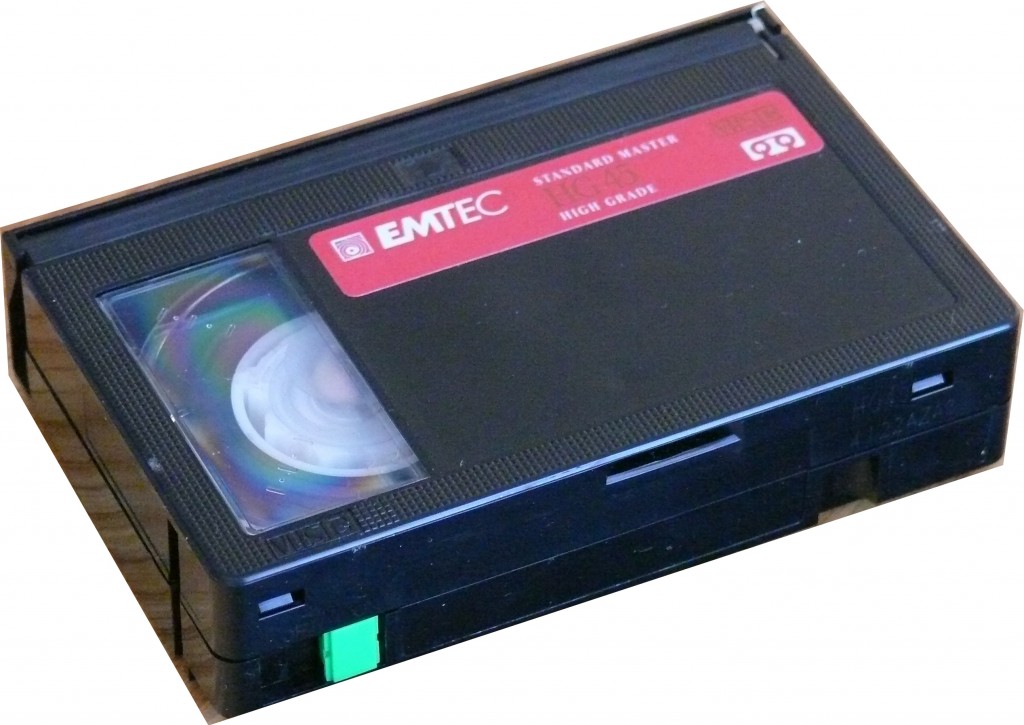
VHS has a smaller cousin – VHS C (Compact). VHS C or Compact was introduced to compete against 8mm / Hi8 in the consumer video camera market.
VHS C had one advantage over 8mm video formats in that one could use a VHS cassette adaptor. The VHS C cassette adaptor would allow the smaller or compact cassette to be played in a normal VHS VCR. Only VHS C tapes fit into the adaptor.
There is no adaptor to allow an 8mm video tape to fit into a VHS machine.

Some of the obvious differences between 8mm video and VHS C
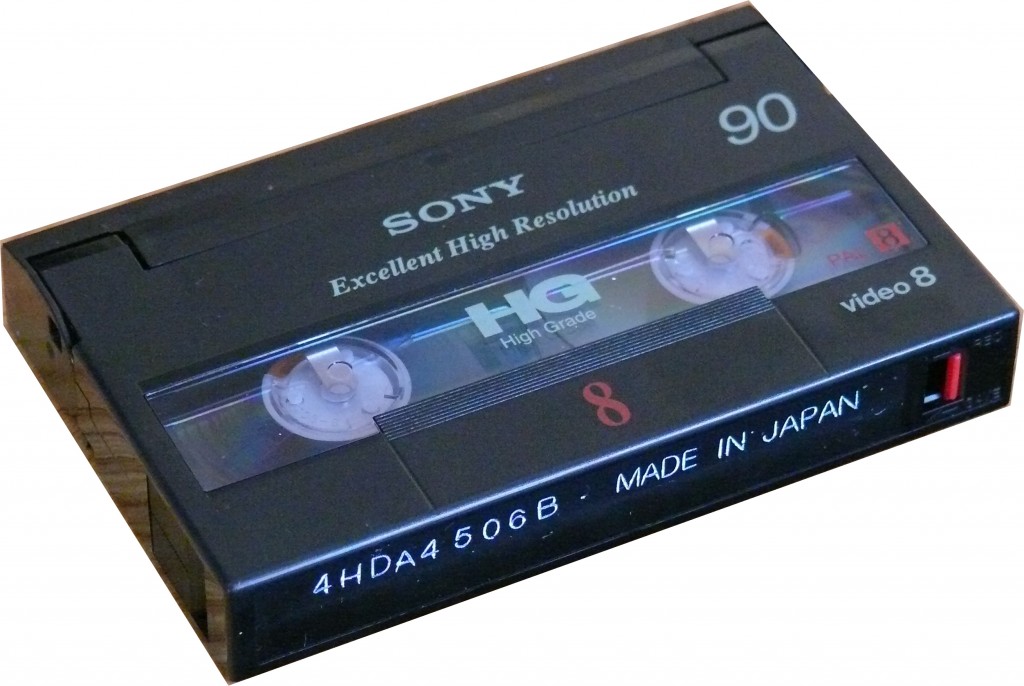
Apart from the obvious differences in physical appearance and size, other factors such as tape / video head speed ratio, FM vs longitudinal audio recording and synch signal recording, make the formats technically incompatible.
VHS C tape (left) compared to a Video 8 tape (right). The tape width 12.7mm for VHS C vs 8mm for the Video 8 range of formats.
This in itself makes the 2 formats totally incompatible with one another.
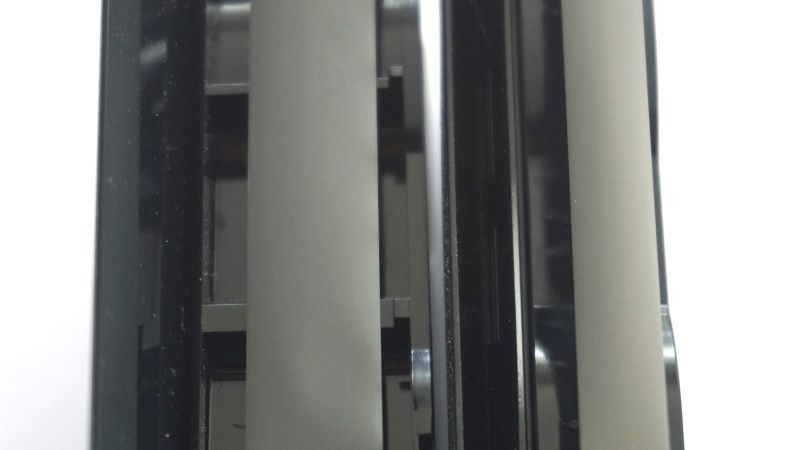

Video 8 vs VHS C – the cassette sizes vary slightly.
VHS C (left) vs Video 8 (right).
VHS C measures 22mm high
Video8 measures 15 high

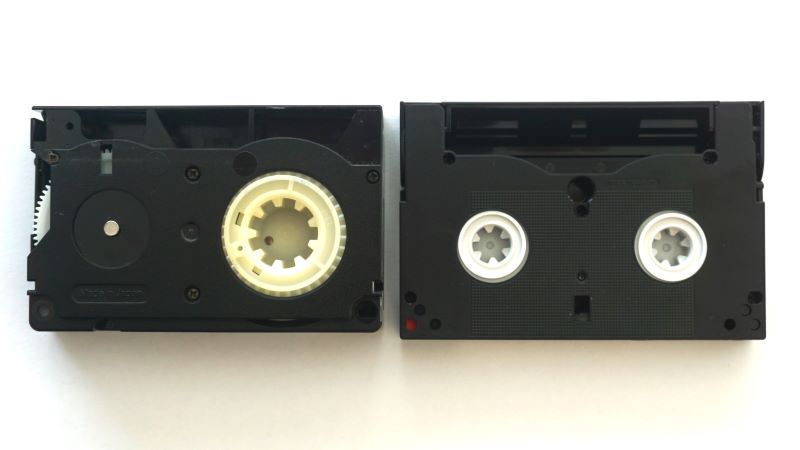
VHS C (left) and Video8 (right)
VHS C has a geared drive system on the take up reel. The reel hubs are different sizes and require different drive systems.
Close up of the inside of a VHSC Cassette adaptor.
The little gear on the side of the internal compartment engages with the gear on the take up reel of the VHS C tape.
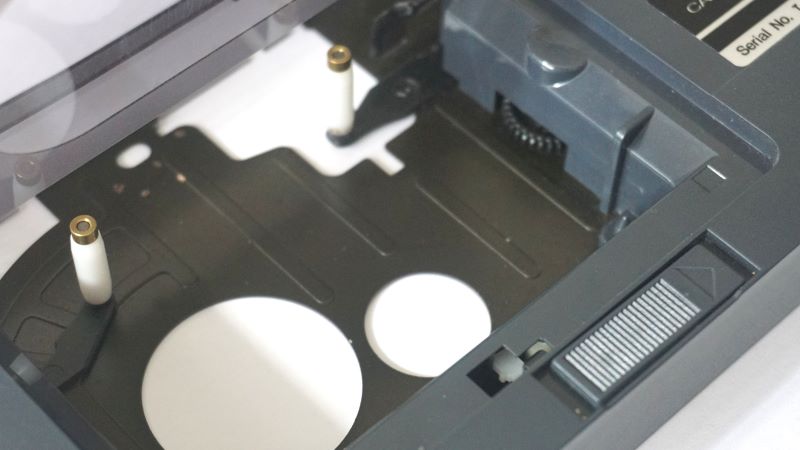
When a VHS C tape is inserted into the cassette adaptor, the tape guides extract the magnetic tape and position the tape such that it is identical to a normal VHS tape.
Pros and Cons
I would argue that 8mm / Hi8 was a better format, image and audio quality was superior to the VHS C format.
VHS C
- 1/2 inch tape.
- 45 or 60 minute tapes – longer if the LP mode is selected.
- Can be played in a VHS VCR with a cassette adaptor.
- Poor image quality – when compared to Video 8.
- Poor audio recording – when compared to Video 8.
- Larger mechanism.
8/Hi8
- 8mm tape.
- 30, 60, 90 and 120 minute tapes with LP options.
- Cannot be played in a VHS VCR.
- Playback via the camera or dedicated 8mm VCR.
- Superior image recording – when compared to VHS C.
- Better audio recording – when compared to VHS C.
- Smaller mechanism.
Convert 8mm video to digital files
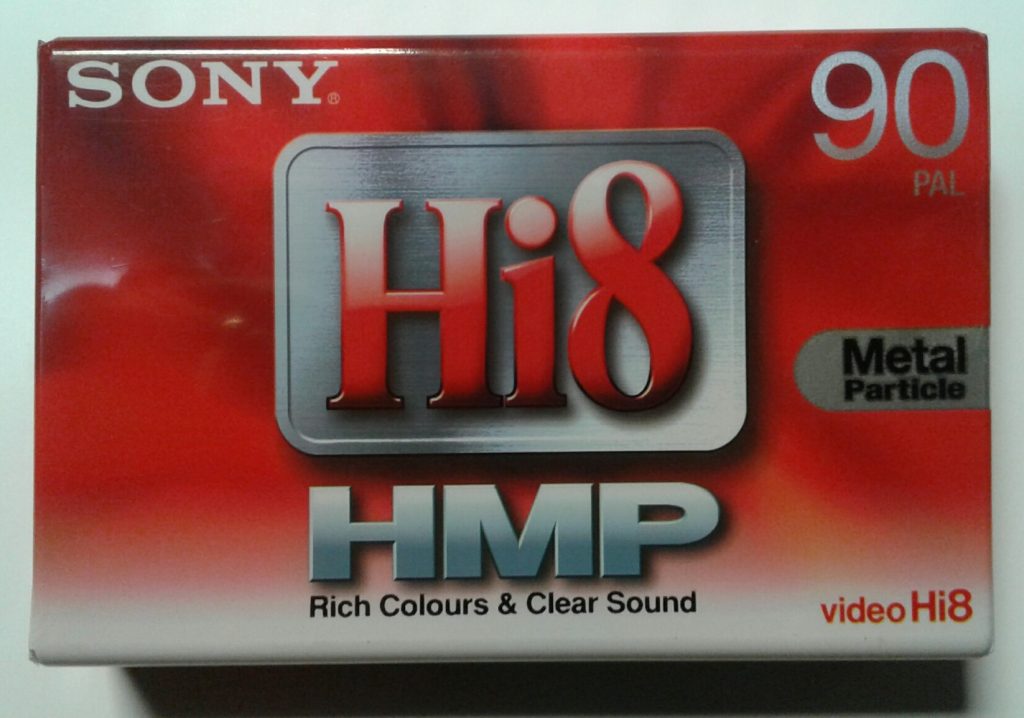
DVD Conversions are specialists in tape and media transfer, having been in the professional video market for 30 years. We have all the equipment to playback all the popular video formats.
Damaged tapes
VHS C and 8mm video tapes are very susceptible to moisture and mould damage. DVD Conversions offer a tape repair and cleaning service for tapes we are converting.
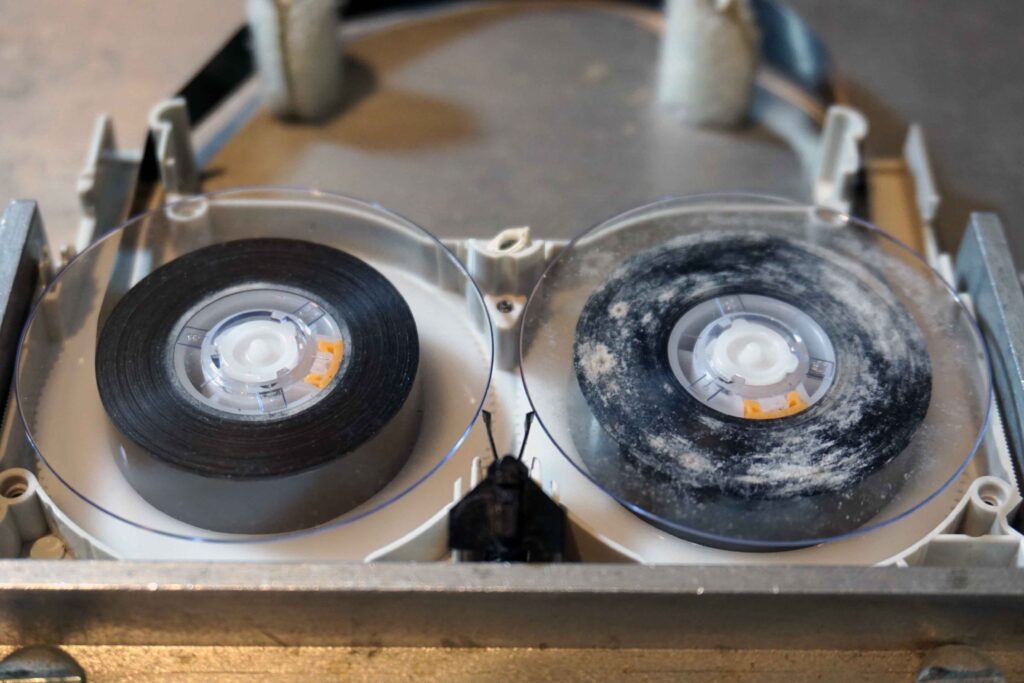
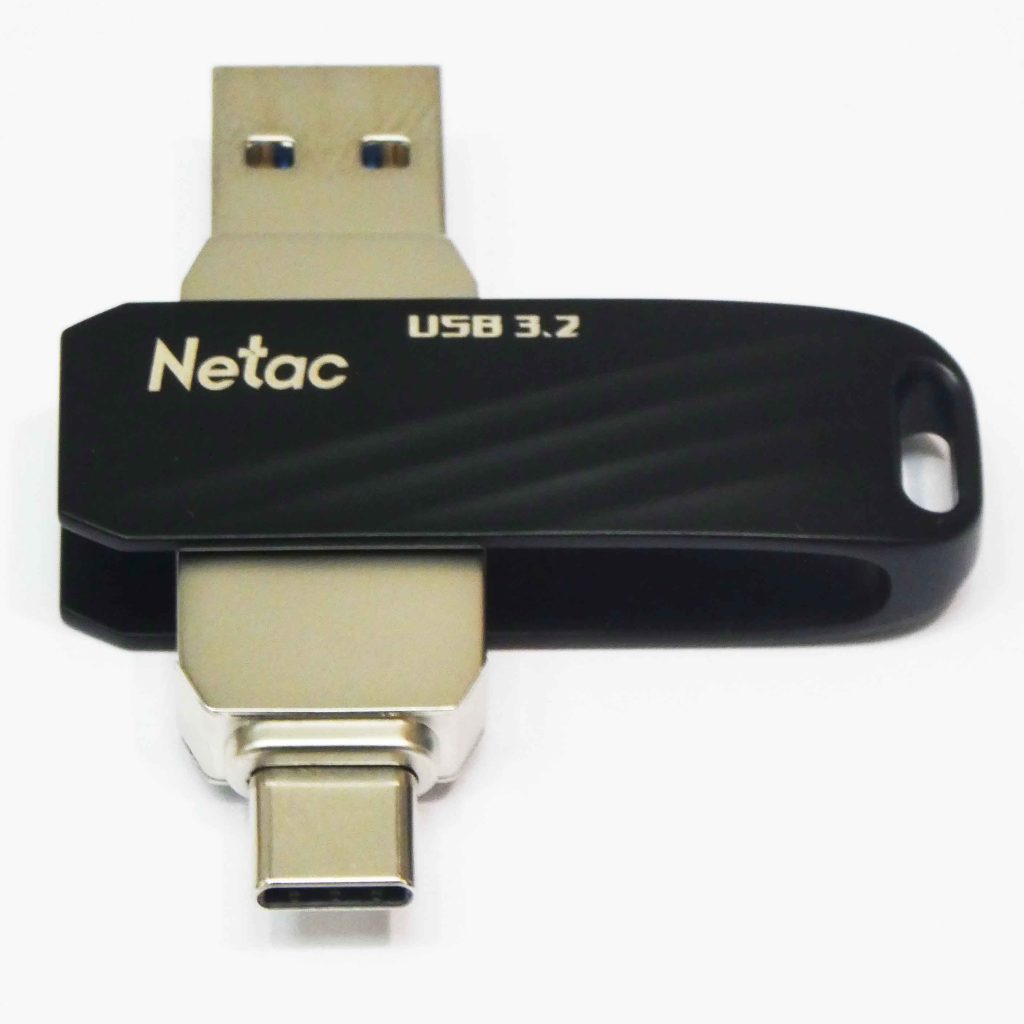
DVD Conversions convert professional and domestic video formats to digital files for archiving, viewing or editing.
Call us today to discuss your tape transfers. For more information got to our video to digital files page.
DVD Conversions Limited also trades as Digital Mix and Kodak Express Botany